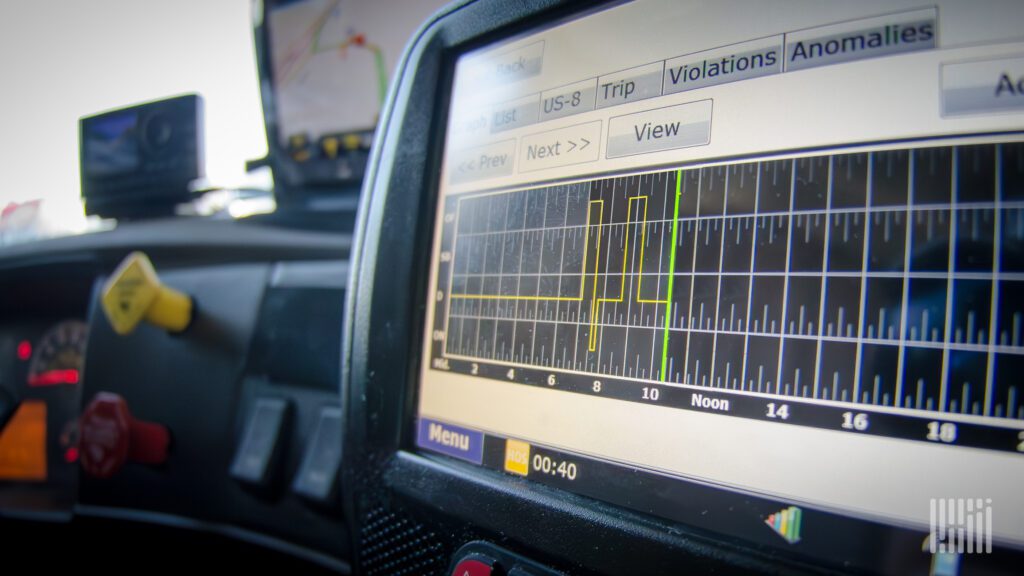WASHINGTON — Trucking companies and independent operators are taking advantage of an opportunity presented by the Trump administration to advocate for the continuation or repeal of the electronic logging device (ELD) mandate that has been effective since 2017.
In comments submitted to the U.S. Department of Transportation (DOT) and made public on Tuesday, the American Trucking Associations (ATA) emphasized that ELDs play a crucial role in enhancing adherence to driver hours-of-service regulations.
“Since the ELD implementation began on December 18, 2017, violations related to hours-of-service, such as drivers exceeding permissible driving hours, have decreased by over 50 percent,” the ATA reported to the DOT, which is seeking public input on deregulating freight transport.
ATA urged the DOT to disregard attempts to repeal or diminish the ELD rule, which it believes stem from misinformation. The organization noted that some opponents of the rule misrepresent ELD technology.
“Certain critics inaccurately assert that ELDs compromise highway safety by pressuring drivers to drive while fatigued, misattributing the constraints of the hours-of-service regulations to the ELDs that enforce them,” stated ATA.
“ELDs merely replace traditional ‘paper logs’ with electronic, automatic records of a driver’s duties based on electronic information from the vehicle’s engine and GPS data.” ATA clarified that the ELD mandate does not restrict a driver’s ability to rest when required.
OOIDA Challenges Safety Claims
The Owner-Operator Independent Drivers Association (OOIDA), representing owner-operators, did not contest claims of improved compliance under the ELD mandate. However, OOIDA argued that the regulation was sanctioned based on the incorrect assumption that ELDs would decrease the likelihood of fatigue-related accidents.
“Since the mandate’s introduction in December 2017, there has been no evidence supporting that ELDs actually prevent accidents,” OOIDA remarked in its comments to the DOT. The association pointed out that the financial burden of the mandate has fallen heavily on small businesses.
“Due to the mandate, small operators are shouldering much of the $1.8 billion cost associated with installing these devices, which has led to less investment in maintenance, equipment, and essential safety upgrades,” OOIDA stated.
If outright repeal of the mandate is unlikely, OOIDA is requesting that the DOT consider adjustments, such as exempting small carriers with established safety records from needing to purchase ELDs, and addressing the issue of malfunctioning devices due to self-certification by ELD manufacturers.
“An extensive ELD certification process is overdue and will provide motor carriers with greater assurance when making critical and expensive decisions regarding which devices to acquire,” OOIDA concluded.
Related Articles:
Click for more FreightWaves articles by John Gallagher.


